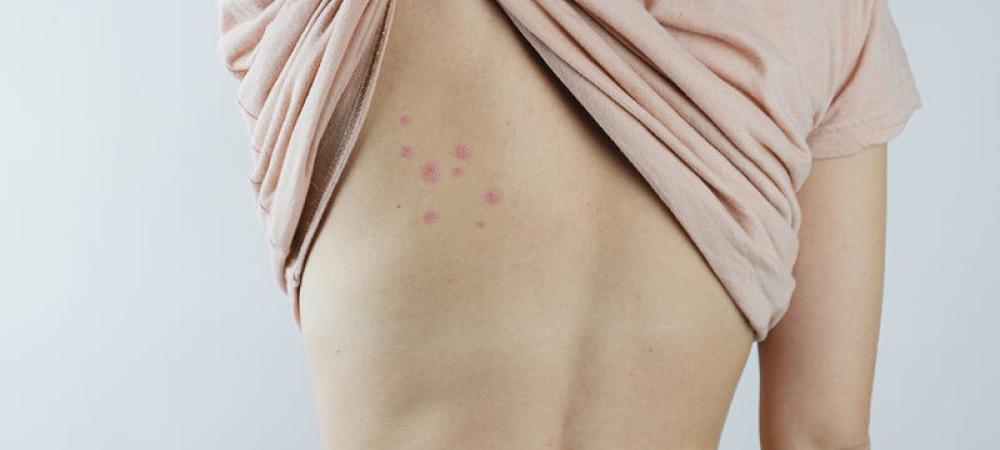How To Identify And Treat Bed Bug Bites

Bed bugs are small, parasitic insects that feed on the blood of humans and animals, leaving behind small, itchy, red bumps. Learn how to recognize, treat, and prevent bed bug bites.
What Do Bed Bug Bites Look Like?
Bed bug bites look like small, red welts, similar to other insect bites. They are smaller than a quarter-inch across, usually appear in a line or cluster, and are very itchy.
Do Bed Bug Bites Hurt?
While the bed bug bites themselves are painless and usually occur at night while people are sleeping, they can cause itchiness, redness, and swelling.
Where Do Bed Bugs Bite?
Bed bugs can bite any part of your body, though they tend to bite exposed skin, such as along the neck, arms, hands, and legs.
Are Bed Bug Bites Dangerous?
While bed bug bites can be painful and cause swelling, they are not considered dangerous and are not known to transmit any diseases. However, in some cases, bed bug bites can cause severe allergic reactions.
Symptoms of Bed Bug Bites
In addition to the distinctive pattern of bites, bed bug bites can also cause:
- Itching
- Swelling
- Redness
In some cases, bug bites can trigger severe reactions, which could lead to:
- Hives
- Difficulty breathing
- Dizziness
- Nausea
Bed Bug Bite Treatments
If you have bed bug bites, there are a few things you can do to relieve the itchiness and discomfort:
- Wash the bites with soap and water to help prevent a skin infection and reduce itchiness.
- Place a cold compress on the area for a few minutes to help reduce swelling.
- Avoid scratching the bite as this can lead to infection.
- Apply a topical antihistamine or calamine lotion to the bites.
- Put a bandage on the bites to prevent unnecessary agitation.
- Take an over-the-counter antihistamine, such as diphenhydramine (Benadryl), as needed.
If your symptoms are severe, you may need a prescription-strength antihistamine or steroid cream.
When to See a Doctor
If you have a severe reaction to bed bug bites, or if you notice signs of an infection (such as redness, swelling, or pus), see your doctor right away. An infected bite can lead to serious complications, such as cellulitis or impetigo.
In rare cases, bed bug bites may lead to a serious condition called anaphylaxis, which requires immediate medical attention.
How To Prevent Bed Bug Bites
Here are a few tips to help you prevent bed bugs and their bites:
- Inspect your sleeping area for bed bugs before you get in bed.
- Check for bed bugs in other areas of your home, such as couches, chairs, and baseboards.
- Vacuum your sleeping area and all furniture regularly.
- Wash your sheets, blankets, and pillowcases in hot water every week.
- Keep your home clean and clutter-free to make it less hospitable for bed bugs.
- Don't bring used furniture or clothing into your home.
- Seal cracks and crevices around your home so bed bugs can't hide.
- Use a mattress cover that's designed to prevent bed bugs from infesting your bed.
Bed bug bites can be uncomfortable and annoying, but they are usually not dangerous. If you are concerned about a possible infestation, the best thing to do is call a professional exterminator. They will be able to identify whether you have bed bugs and get rid of them for you.

